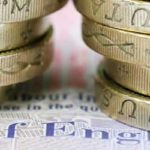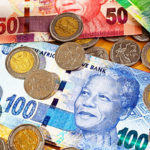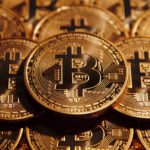The euro rebounded from a one-month low against the US dollar on Monday, after preliminary data showed that inflation in the euro area fell to the weakest level since October 2009, which added to expectations the European Central Bank officials will take action as soon as this week to bolster the euro zones recovery, but also prompted investors to take profit on these bets.
EUR/USD touched a session low at 10:00 GMT, after which the pair erased daily losses to trade at 1.3801 at 12:33 GMT, adding 0.35% for the day. Support was likely to be received at March 28th low, 1.3705, also the pairs weakest since February 28, while resistance was to be met at March 26th high, 1.3823.
Euro zone’s preliminary annualized index of consumer prices, evaluated in accordance with Eurostat’s harmonized methodology, slowed down to 0.5% in March from 0.7% in February, trailing analysts forecasts for a smaller decline to 0.6%. Marchs inflation rate is the weakest since October 2009 and marked a sixth straight reading below 1%, remaining quite far from European Central Bank’s inflation target of just under 2%.
However, the low number was not a major shock, so after the euro dropped briefly in anticipation the ECB will soon act, traders shifted their focus to the looming end of the first quarter and reduced their positions.
Energy prices plunged 2.1% this month after a 2.3% drop in February, data showed today. Prices of alcohol, food and tobacco rose 1% in March, following a 1.5% increase in the previous month, according to Eurostat. The cost of services in the euro area surged 1.1 percent after a 1.3% gain in February.
The governor of the Bundesbank and member of the ECB Governing Council, Jens Weidmann commented on March 25 that the recovery will push inflation rates back higher.
“With regard to the currently low level of inflation in the euro area, one should bear in mind that two thirds of this deceleration of prices can be attributed to energy and unprocessed food prices, which is to say cyclical factors that are likely to be temporary,” Weidmann said, cited by Bloomberg.
The weak price pressure in the 18-nation common-currency bloc may prompt the ECB to introduce additional measures at its upcoming policy meeting this Thursday. At its last policy meeting, on March 6th, the ECB officials maintained the main interest rate at a record-low 0.25%.
The central bank forecast an inflation rate of 1% in 2014 and 1.3% next year, well below its target of 2%, which is used as a benchmark for price stability in the medium term.
Last week, ECB President Mario Draghi reiterated that he will “take additional monetary policy measures” if “any downside risks” appear to its forecast for a “gradual closing of the output gap in the coming years.” The risks include weak price pressure and a stronger euro, he added.
Meanwhile, the monthly business activity survey for the area of Chicago may show that the corresponding PMI slowed down to a reading of 58.5 during March from 59.8 in February. Higher than anticipated readings would provide support to the US dollar.
Greenback’s demand was pressured on Friday, after Thomson Reuters in cooperation with the University of Michigan reported the final reading of their index, a gauge of US consumer confidence, which came in at 80.0, below analysts’ expectations of an increase to 80.5, but slightly up from a preliminary reading of 79.9.
However, data also showed that consumer spending in the US rose in February by the most in three months as incomes increased, adding to evidence the economy is gaining momentum after the unusually harsh winter.
Consumer spending, which accounts for almost 70% of the American economy, rose 0.3% last month, in line with analysts’ estimates and after a 0.2% increase in the previous month that was smaller than previously reported. Incomes also advanced 0.3% in February, in line with analysts’ expectations and matching January’s gain, data by the US Commerce Department showed today.





